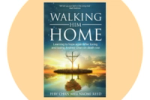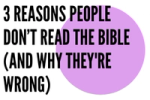Archbishop of Canterbury: Unity is God's gift to the Church
Sam Hailes
The Archbishop of Canterbury, Rowan Williams, spoke yesterday at the Ecumentical Center in Geneva about the importance of Christian unity.
The responsibility of Christians who receive the gift of unity lies in "seeking a life in which no one is without the other," Williams told staff, visitors and governing members of the World Council of Churches (WCC).
"Unity is neither a means nor an end," he said. "Unity is what God has given us in the church," he told the roundtable discussion, that included representatives of the Eastern Orthodox, Roman Catholic, Lutheran and Reformed confessions of faith.
The Rev. John Gibaut, director of the WCC joint commission on Faith and Order, said disunity is often more evident than church unity, and noted different traditions describe the church in differing terms.
"If we cannot agree on what we mean by the church, we cannot begin to say much about the unity of the church," he said, noting that the joint commission is working on a proposed consensus document on "The Church."
The Rev. Setri Nyomi, general secretary of the World Communion of Reformed Churches, noted that Christians are called together for a purpose and depicted the unity of the church as both "a gift and an obligation for the people of God." Christians are not called simply to 'be' one, but to act together against injustice and violence, and to establish peace, he added.
Williams also emphasised the link between human rights and faith, arguing that the language of rights must not lose "its anchorage in a universalist religious ethic".
Later, in a keynote lecture entitled, "Human Rights and Religious Faith," Williams described the Universal Declaration of Human Rights of 1948 as a landmark in the history of moral consciousness.
"It has offered a global benchmark for identifying injustices to those who have never been able to make their voices heard," he said, and "a crucial way of working out what it is for people to belong together in a society."
Williams also voiced his concerns about the vulnerable position of religious minorities, noting that "this is particularly acute where there is vague tradition of tolerance towards a minority that has never quite amounted to full civic equality."
The Anglican Communion leader also flagged his concerns about the need to ensure proper protection of migrants, including asylum seekers, saying that "it is an area in which regression to attitudes of suspicion and harshness is in evidence in more than one society.
Latest Blogs

Spiritual Growth
LENT COURSES - How to choose the right one for you
Long overshadowed by the celebrations of Easter Sunday, Lent is being rediscovered as a sacred time of reflection and renewal in its own right and a time of preparation for the joyous seasonal finale.

Featured
Stocking Fillers
Here’s our pick of the top 3 Stocking Fillers this Christmas. You can find even more at our Christmas Store.

News
Where to Watch the New C.S. Lewis Film
Heading to a screen near you soon, The Most Reluctant Convert is a feature-length movie about the life and faith of one of England’s greatest Christian writers and thinkers: C.S. Lewis.

News
Advent Study Guide Review 2021
Go deeper with this year's brilliant Advent Bible Study Guides.

Interview
Author Interview with Feby Chan and Naomi Reed
Feby tells her compelling story in her book Walking Him Home. After wrestling with grief and suffering, she shares how God’s healing and faithfulness is enabling her to step into her new life and ministry.

Featured
3 Reasons People Don’t Read the Bible
We are currently in a strange situation. Bible sales are up, but the number of people reading the Bible is going down. Even stranger, this situation is nothing new. There has always been a difference between the number of people who own a Bible and the number of people who regularly read their Bibles.
